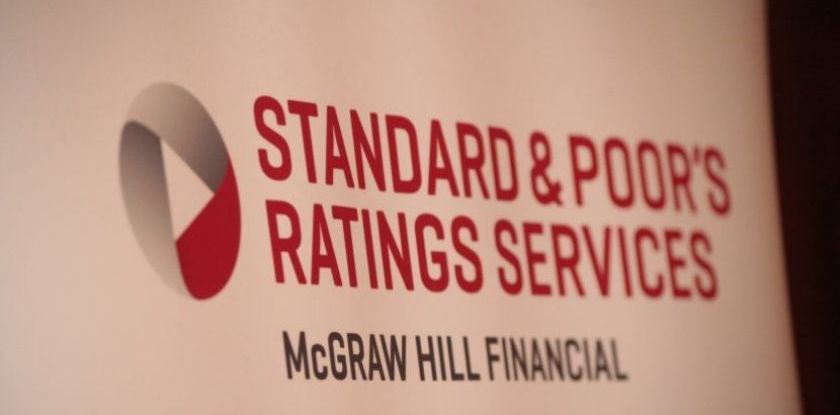On September 8, 2017, the S&P Global Ratings agency revised Kazakhstan’s credit rating from “negative” to “stable”. This news had, undoubtedly, cheered not only the management of the National Bank of Kazakhstan but the government as well.
“In our opinion, the pressure on Kazakhstan’s balance sheet remains moderate and Kazakhstan’s monetary flexibility has become less constrained thanks to the decline in resident deposit dollarization in the economy. Consequently, we revise Kazakhstan’s rating from “negative” to “stable” and affirm the long-term and short-term credit ratings at ‘BBB-‘ and ‘A-3’. The stable outlook reflects our expectation that we have captured the fiscal costs of the authorities’ banking sector recapitalization plans in our projections and that economic activity will remain relatively robust over the period to 2020”, says the press-release.
Nevertheless, the S&P analysts, due to their professional ethics, could not have gone without adding a drop of poison to this honey-pot. And this “poison” is more of a political than economic nature. It means that Nazarbayev’s well-known motto “economy first, politics second” has ceased to be precepted as the correct, timely, and feasible one not only in Kazakhstan but outside its borders as well.
To confirm our observations, we will quote some paragraphs from the S&P press-release. The crucial (from our standpoint) messages are put in bold.
“We could raise the ratings if, outside of our expectations, recent political
reforms result in a significant strengthening of institutions. We could also
upgrade Kazakhstan if the government’s diversification strategy were to result
in a more broadly based export basket, reducing the economy’s exposure to
volatile terms of trade dynamics”.“Our ratings on Kazakhstan remain primarily supported by the government’s strong
balance sheet, built on past budgetary surpluses accumulated in the National Oil
Fund during the era of high commodity prices. Kazakhstan’s strong liquid
external asset position (exceeding external debt) also supports the ratings”.The ratings remain constrained by our view that future policy responses may be
difficult to predict, due to the highly centralized political environment; the
country’s moderate level of economic wealth; and remaining challenges to
monetary policy credibility, despite a switch to a floating exchange-rate
regime.Institutional and Economic Profile: Constitutional changes likely to have
limited immediate effect. Constitutional changes pave the way for the possible strengthening of
Kazakhstan’s institutions following the eventual transition after President
Nazarbayev’s rule”.“Our ratings on Kazakhstan remain constrained as, in our view, decision-making
remains highly centralized, which can reduce policy-making predictability. There
have been no transfers of power since Nursultan Nazarbayev became president
following Kazakhstan’s independence in 1991. As a result of President
Nazarbayev’s hold on power, Kazakhstan has benefited from one of the most stable
political environments in the region since the breakup of the Soviet Union. The
president has stated that he expects to serve his full term to 2020.
Considerable uncertainties surround the eventual presidential succession.
In early March 2017, Kazakhstan’s parliament passed constitutional changes,
announced by President Nazarbayev, to increase the role of the cabinet and
parliament at the expense of the president. We view these as an effort to
prepare institutions for the eventual transition from President Nazarbayev, but
we do not expect the constitutional changes to have any practical impact until
that time”.
Here is the summary. The S&P Global Ratings
- does not expect that the recent political “reforms” in Kazakhstan will lead to a significant strengthening of the state institutions;
- hopes that Akorda’s economy diversification strategy will result in a more broadly based export basket and reduce the economy’s exposure to volatile terms of external trade dynamics;
- confirms that Kazakhstan’s current credit ratings are primarily supported by the budgetary surpluses accumulated in the National Fund;
- underscores that the highly centralized process of political decision-making in Kazakhstan diminishes the predictability of these decisions;
- warns that the potentially low predictability of the future political decisions including the issue of who will become Nazarbayev’s successor as President negatively affects the country’s sovereign ratings and, therefore, lowers the activity of foreign investors.
For our part, we will note that the absence of the clarity in the Nazarbayev’s successor issue negatively influences not only foreign investors but also (and more so) Kazakh entrepreneurs because they see no reason to invest heavily in the situation of political uncertainty. Thus, the bigger part of the monetary resources legalized during the last campaign seems to have left the country after all. Or perhaps it has been put away – to some safe place.




